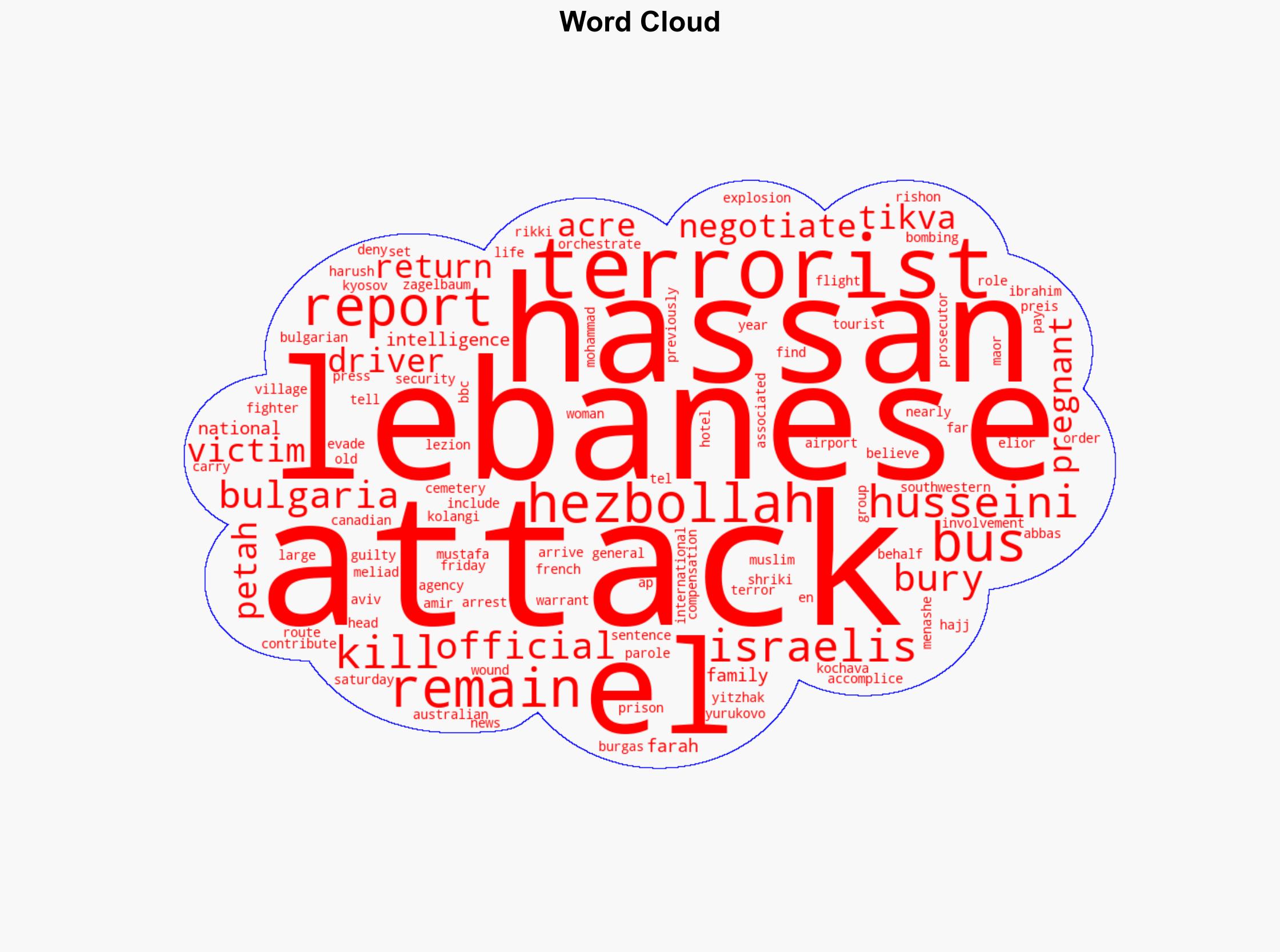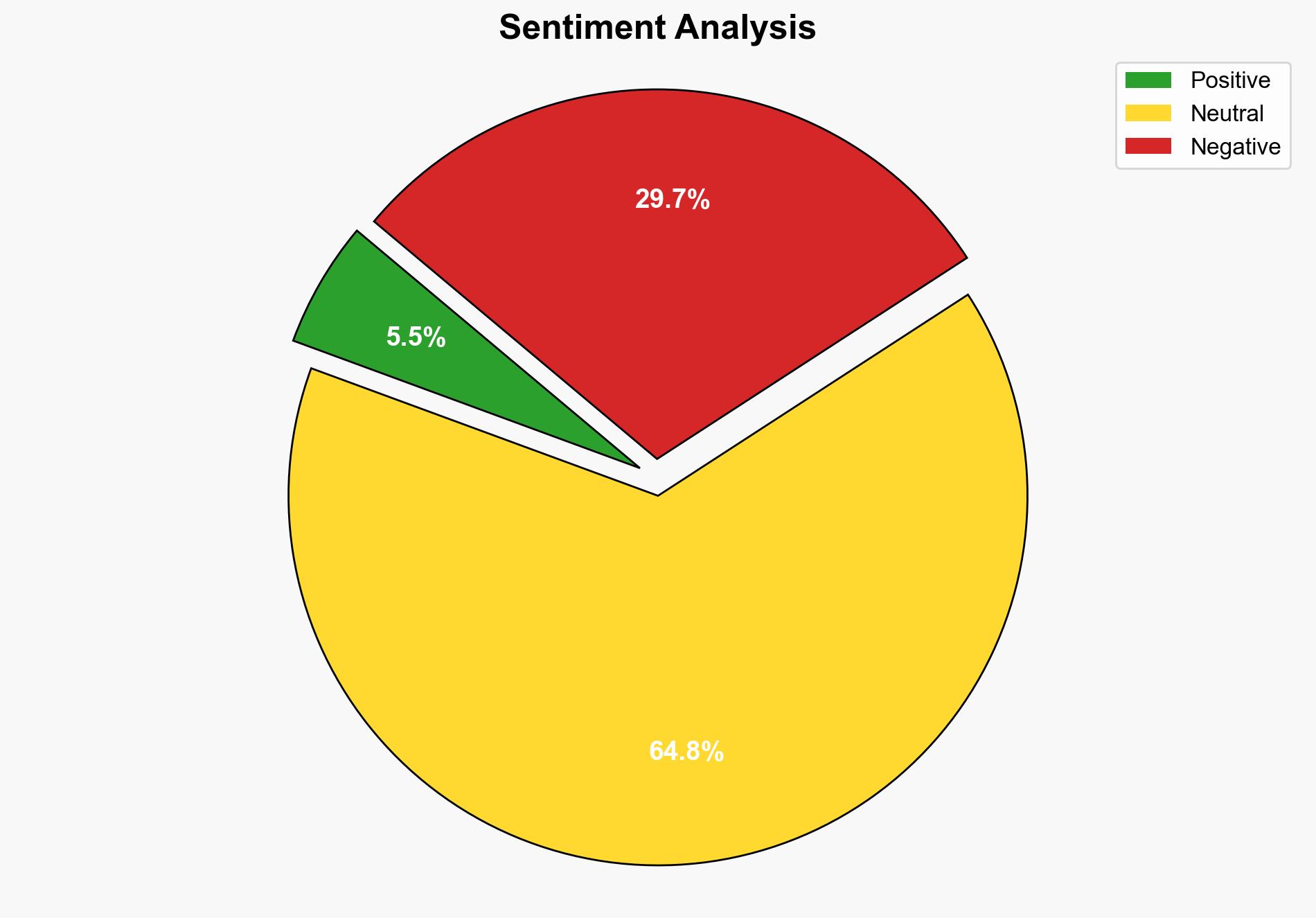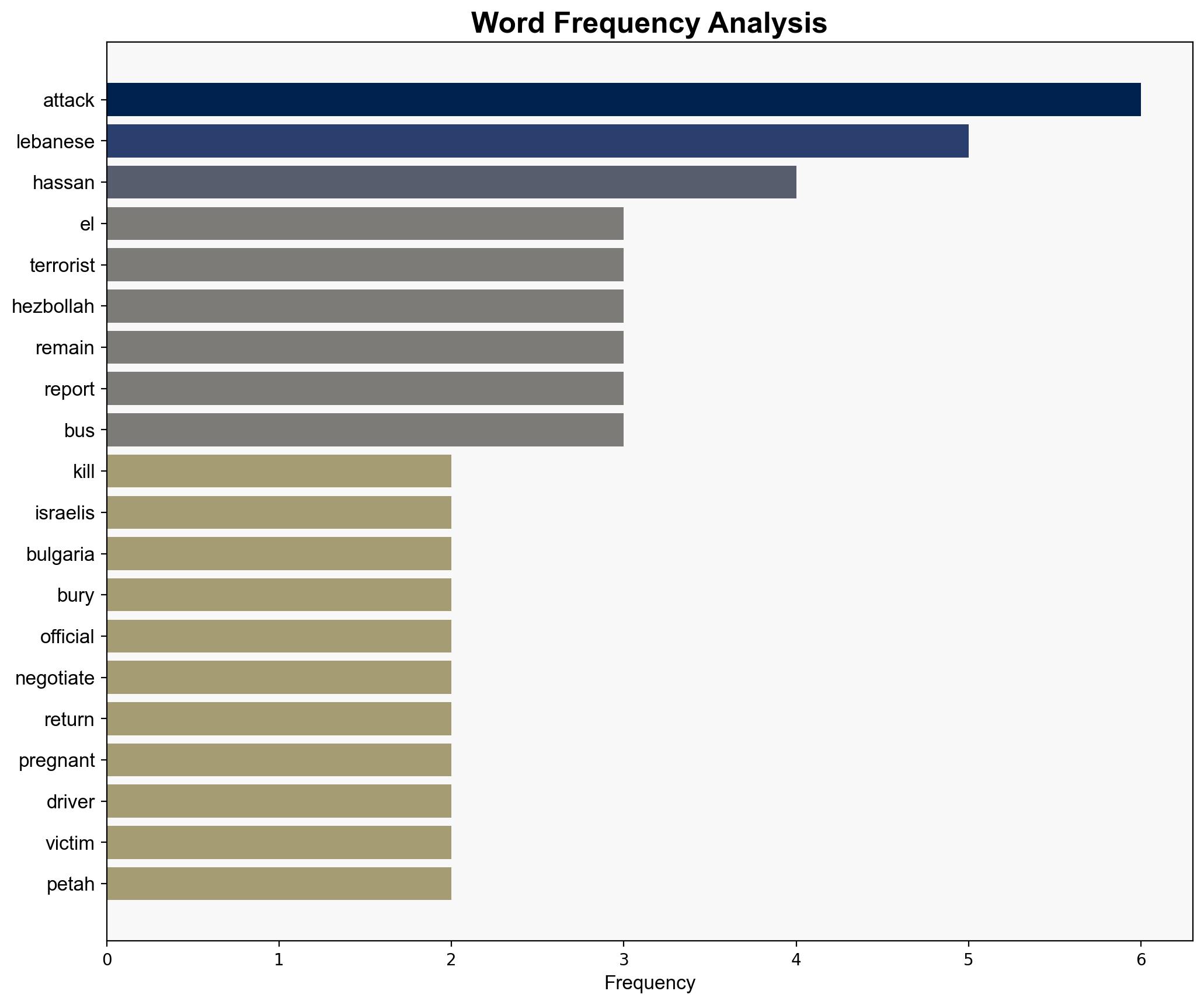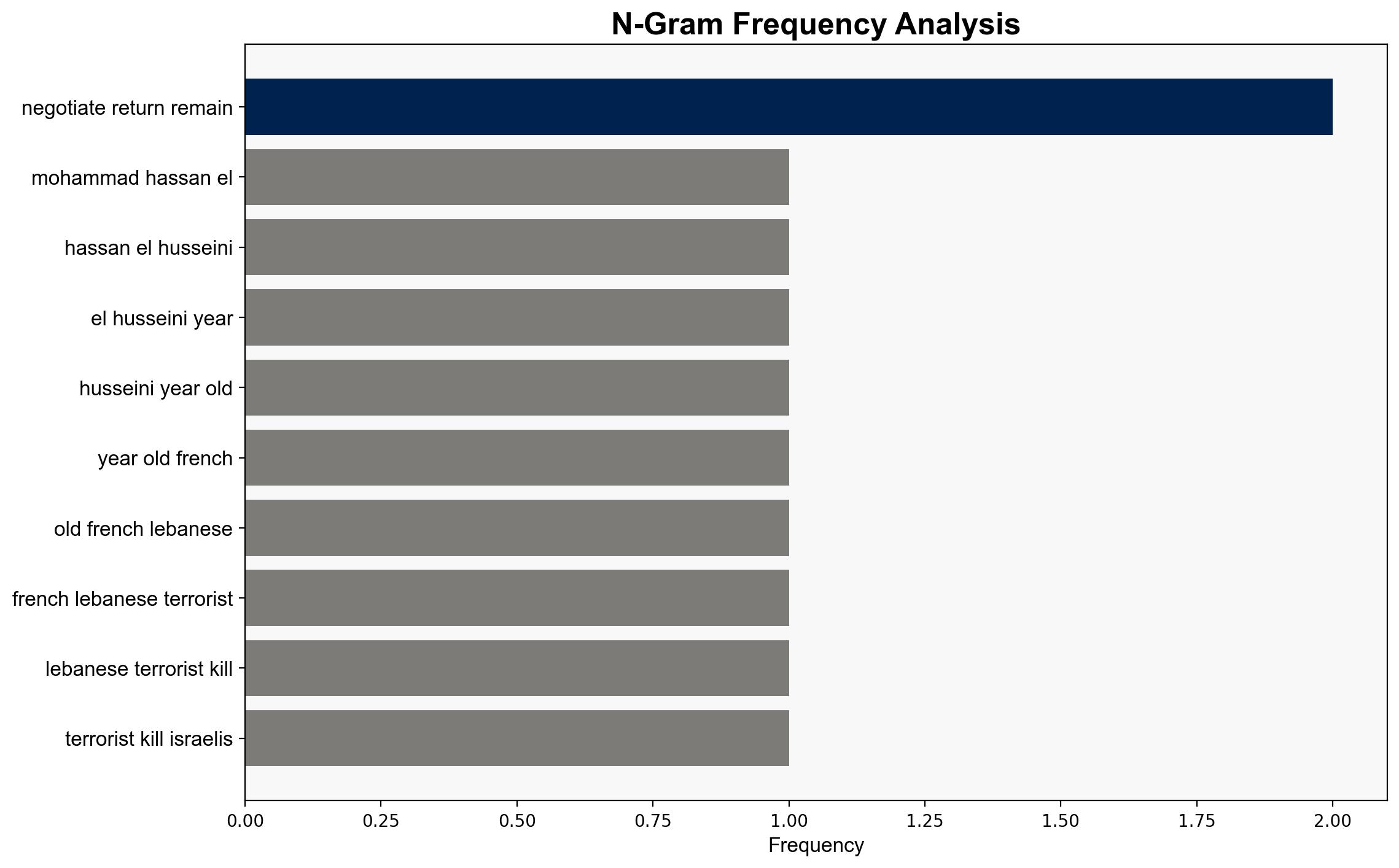Bulgaria bombing terrorist buried in Hezbollah cemetery after Lebanese officials intervene – The Jerusalem Post
Published on: 2025-04-13
Intelligence Report: Bulgaria bombing terrorist buried in Hezbollah cemetery after Lebanese officials intervene – The Jerusalem Post
1. BLUF (Bottom Line Up Front)
The remains of Mohammad Hassan El-Husseini, responsible for a 2012 terrorist attack in Bulgaria, have been returned to Lebanon and buried in a Hezbollah cemetery following negotiations by Lebanese officials. This development underscores ongoing concerns about Hezbollah’s involvement in international terrorism and the challenges in apprehending accomplices who remain at large. Immediate attention is required to address potential security threats and diplomatic tensions arising from this incident.
2. Detailed Analysis
The following structured analytic techniques have been applied for this analysis:
General Analysis
The burial of Mohammad Hassan El-Husseini in a Hezbollah cemetery, facilitated by Lebanese officials, highlights the complex interplay between state actors and non-state militant groups. The involvement of Hezbollah in the 2012 Bulgaria bombing, despite their denial, is supported by intelligence and judicial findings. The continued evasion of justice by accomplices Meliad Farah and Hassan El Hajj Hassan raises significant concerns about international cooperation in counterterrorism efforts. The attack resulted in the deaths of five Israelis and a Bulgarian national, with numerous others injured, emphasizing the human cost and the need for robust counterterrorism strategies.
3. Implications and Strategic Risks
The burial of El-Husseini in a Hezbollah cemetery may embolden the group and its supporters, potentially leading to increased recruitment and radicalization efforts. The incident could strain diplomatic relations between Lebanon, Israel, and other nations affected by Hezbollah’s activities. Furthermore, the inability to apprehend Farah and Hassan poses a continued threat to international security, as they may still be operational or capable of orchestrating further attacks.
4. Recommendations and Outlook
Recommendations:
- Enhance international collaboration and intelligence sharing to apprehend fugitives Farah and Hassan.
- Implement stricter regulations and monitoring of financial and logistical support to Hezbollah.
- Strengthen diplomatic efforts to hold state actors accountable for supporting or harboring terrorists.
Outlook:
In the best-case scenario, increased international pressure and cooperation lead to the capture of the accomplices and a reduction in Hezbollah’s operational capabilities. In the worst-case scenario, Hezbollah’s influence grows, leading to more frequent and severe attacks. The most likely outcome involves continued tension and sporadic incidents, necessitating ongoing vigilance and adaptive counterterrorism strategies.
5. Key Individuals and Entities
The report mentions significant individuals and organizations:
- Mohammad Hassan El-Husseini – Perpetrator of the 2012 Bulgaria bombing.
- Meliad Farah – Accomplice, currently at large.
- Hassan El Hajj Hassan – Accomplice, currently at large.
- Abbas Ibrahim – Negotiated the return of El-Husseini’s remains.
- Hezbollah – Alleged orchestrator of the attack.




